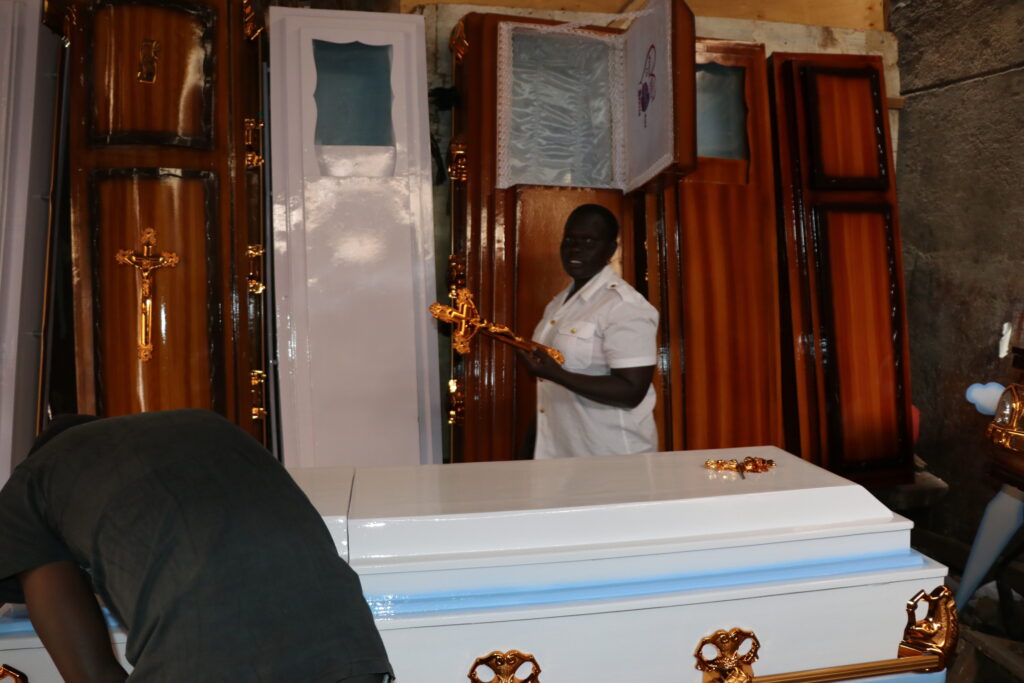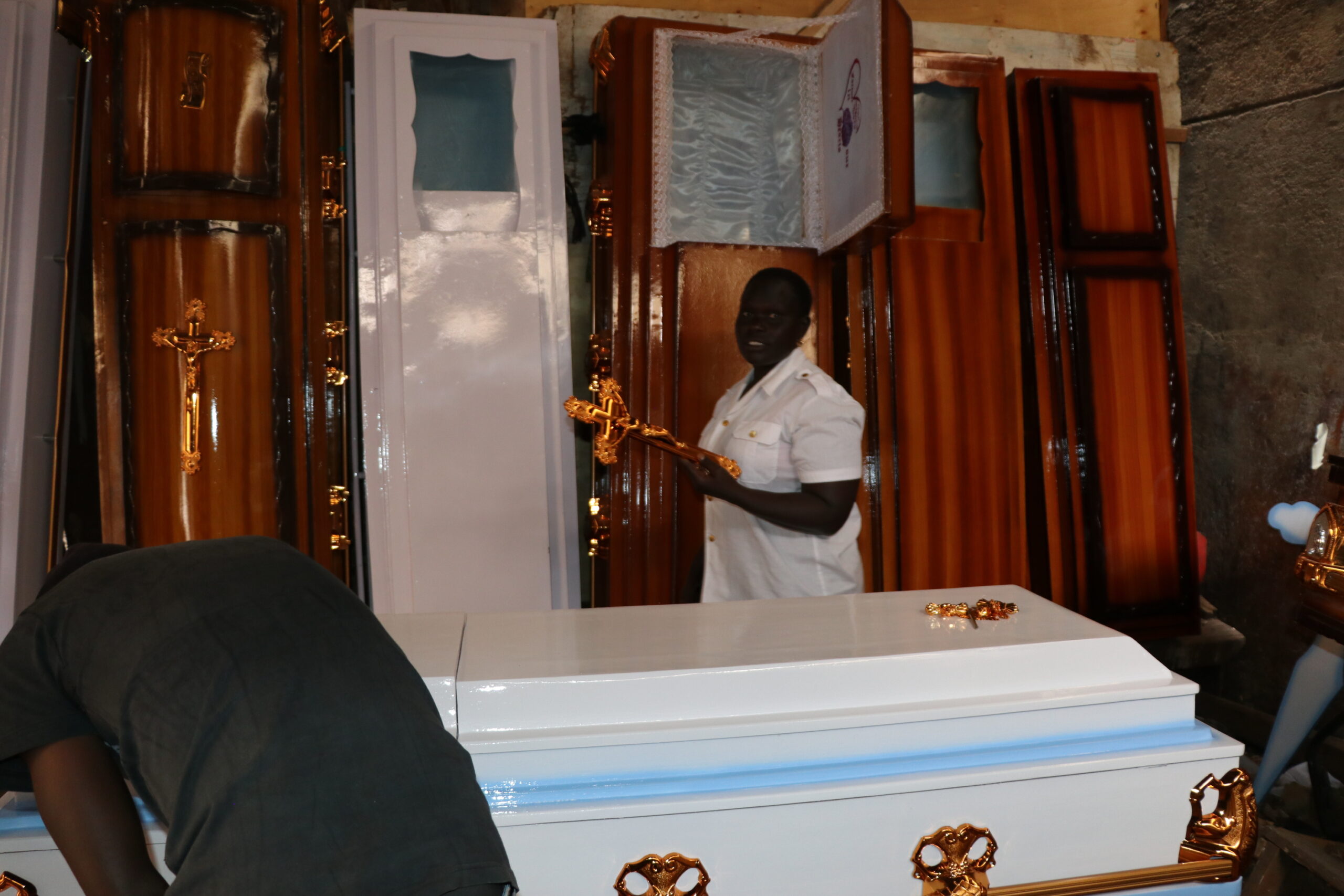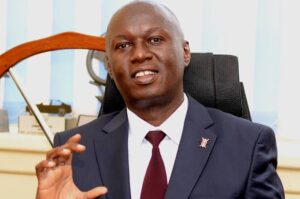Meet Emily Chepchirchir Coffin Seller

In Kenya and African culture, women have always been taking part in home chores such as taking care of the young ones and cooking other than offering companionship and friendship to the husband.
Women in African culture are banned from engaging in other activities, which leads to the breach of the cultural norm.
Kenya is one of the African states which has been able to conserve some of its culture, where some communities have gone beyond the circle that constrains them from engaging in other activities.
The constitution of Kenya has opened opportunities for women to go and learn skills, which will help them in the future by enrolling in institutions and employment of women in jobs, which are for the longest time dominated by men.
In Eldoret town, Uasin Gishu county I met a woman who has gone against all odds to engage in coffin selling business which for the longest time has been done by men.
Emily Chepchirchir has been selling coffins for more than a decade.
“ I started selling coffins when I was still a young girl in 2006, when I was employed to make coffins by my then employer who helped me to understand this business,” Said Chepchirchir.
Chepchirchir joined the venture after her dream was shuttered due to the lack of fees and hardship faced in the family, which caused her to drop out of form one.
“I was forced to give in when my sponsors we unable to fund my scholarship for secondary education and back at home things were not well and I did not have any better option but rather to dive in,” she added.
Coffin sellers many times have received criticism from the public and also from close relatives which Chepchirchir narrates.
“My people back at home in Lessos ( Nandi County) fear what am venturing in and many times they stigmatize me and even don’t want to greet me many times we meet with them in church and they ask me why am I attending the church service despite the work that is doing,”
Coffin’s business has earned her a Nickname which when translated means a Courageous Man according to the Kalenjin community where she hails from.
“People in my community fear this kind of job because this job is mostly done by men and later they gave a name “CHEBOMUREN”, because I have gone against all odds as a Kalenjin woman,” she explained.
She has been able to educate her children and employ other women who help her in marketing her workshop since they were relocated to a new location.
“ Despite all the Criticism that I faced as a woman, my siblings are educated, and am also an employer to several ladies who help me,a carpenter, and a few drivers who transport the dead up to their various places of burial,” explained Chepchirchir
Through technology, she has been able to get other customers who are referred to him by her former customers.
“ in my line of duty sometimes, when I approach customers you can meet someone and they feel bad because you have told them that you are dealing with coffins, but now can receive phone calls from customers when they need my services,” Narrated Chepchirchir.
On the other hand, Chepchirchir has urged those who are still studying to take any job as they await to venture into their specialized skills.

“ I want to encourage youths in the country that you should not choose a given work since when you start choosing work you will not be able to earn a living, so just do that work,” she Concluded.
For us to get more in-depth about the Kalenjin culture, where Chephirchir comes from I needed to understand more on the roles of women in the society.
I met Jacob Kimutai an Elder from the community and he highlighted that Kalenjin Women were not allowed to do such roles.
“In our culture, women were not even allowed to approach the dead and even touch a coffin as it was a taboo”
Even our role as men was not to dig graves, those roles were given to other communities who were paid to do such work, “Kimutai explained.
He stated that the hard economic time might have led to women going against the cultural norms.







